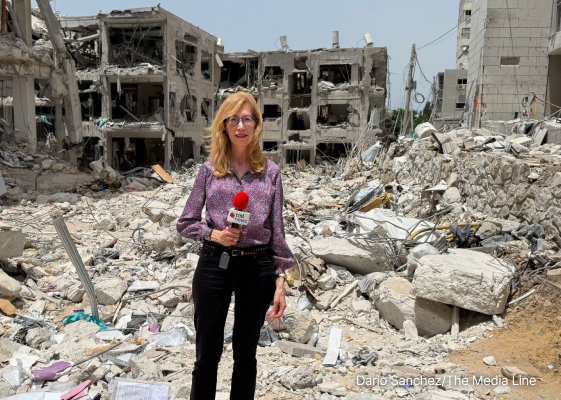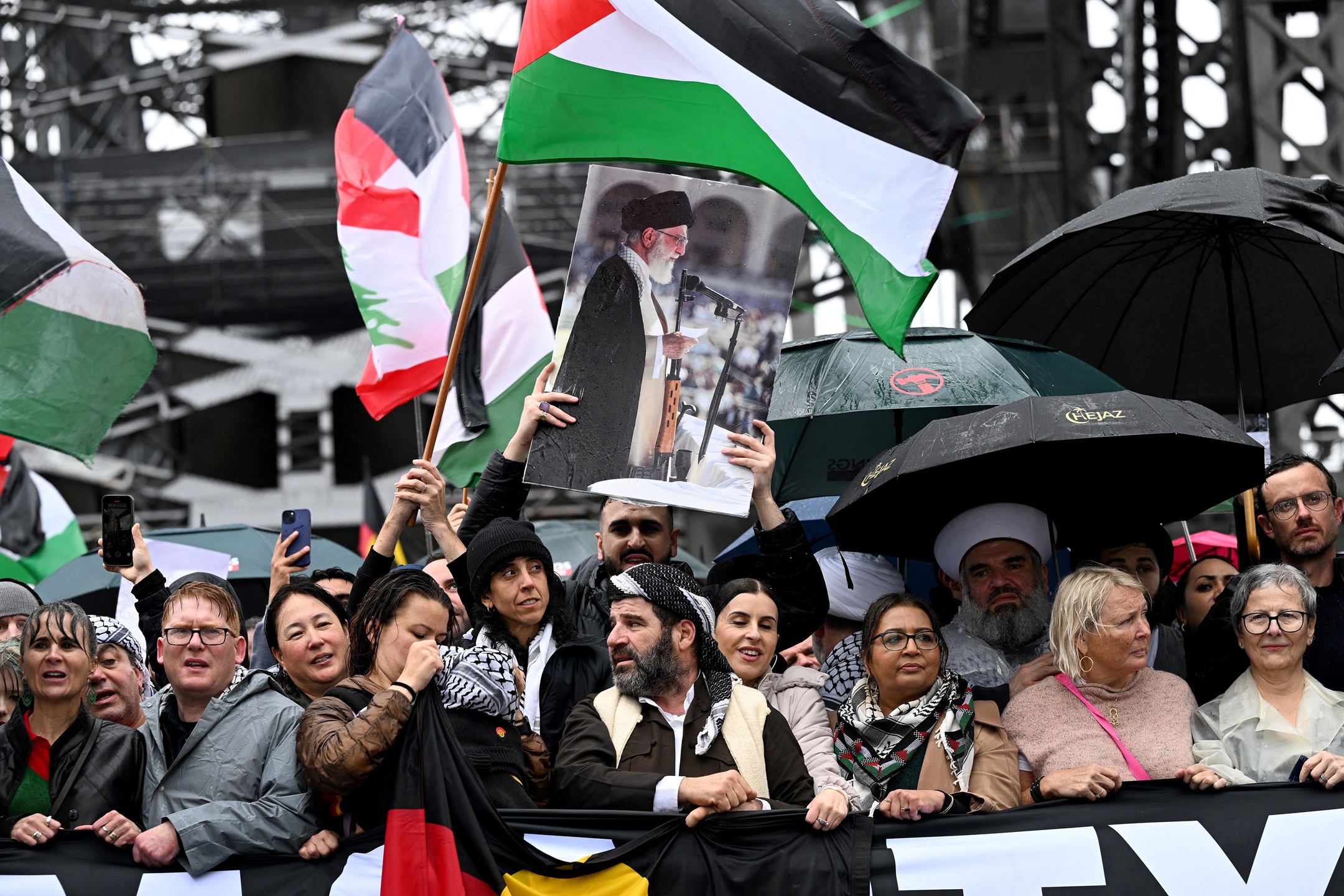OPINION – Australia’s Culture War Turns Against Its Jews
A wave of anti-Israel activism has shaken Australia's Jewish community and redefined the country's political landscape
Sydney, Australia, is one of the most picturesque cities in the world. Its two iconic landmarks have bookended what has unfolded in the country regarding the Middle East conflict, the question of Palestine, and the unleashing of one of the most virulent strains of antisemitism seen in a Western democracy.
The eruption began at the Sydney Opera House two days after the world witnessed the horrors of October 7, 2023. Roughly a thousand radical Islamists gathered to shout “f—k the Jews” and “gas the Jews.” The government and police responded with silence.
Just last weekend, 90,000 people marched across the Sydney Harbour Bridge. Ostensibly organized to raise awareness of the alleged plight of starving Palestinians, the rally—like others over the past 20 months involving an alliance of the extreme left and radical Islamists—turned into yet another expression of hate. Demonstrators called for the annihilation of the Zionist state of Israel and a global intifada. Posters of Iran’s supreme leader, Ayatollah Ali Khamenei, and flags of Hamas and Hezbollah were on display. A similar protest in Melbourne featured the burning of the Australian flag.
Notably absent from the demonstration was any mention of freeing hostages or disarming Hamas—measures that could actually bring the conflict to an end. This silence was especially glaring after videos emerged of two emaciated and tortured hostages taken from the terror tunnels in Gaza. Replace those tunnels with barbed wire, and you could be forgiven for imagining images from Auschwitz, Bergen-Belsen, or Buchenwald.
Personally, like most Australian Jews, I am still grappling with the seismic shifts that have occurred within the country. Is this really the same Australia—long viewed as a beacon of multiculturalism—where I was raised and spent most of my adult life?
The radical left’s fixation on delegitimizing Israel began after the Six-Day War in 1967. Its campaigns originated on university campuses. Over the decades, adherents of this movement have ascended to positions of influence in politics, academia, unions, and the media.
An outgrowth of this trend was the rise of the Greens party, whose ranks are now filled with Marxists who openly support Hamas and have called for sanctions against Israel. The Labor Party has also been taken over by the left. For the past two decades, its conventions have regularly passed resolutions calling for recognition of a Palestinian state.
That Labor Party—the one once led by longtime friend of Israel Bob Hawke—is no more. Prime Minister Anthony Albanese and Foreign Minister Penny Wong are both products of the pro-Palestinian movement on university campuses.
Since the start of the current conflict, Wong has repeatedly urged Israel to exercise restraint in its responses to Hamas and Hezbollah, showing little regard for the fact that these groups were the aggressors.
Give the gift of hope
We practice what we preach:
accurate, fearless journalism. But we can't do it alone.
- On the ground in Gaza, Syria, Israel, Egypt, Pakistan, and more
- Our program trained more than 100 journalists
- Calling out fake news and reporting real facts
- On the ground in Gaza
- Covering Israel, Syria, Lebanon
- More than 100 students
- Exposing fake news
Join us. Support The Media Line. Save democracy.


Aside from issuing empty statements about freeing hostages and calling on Hamas to relinquish power, Wong has directed nearly all of her criticism at Israel’s conduct of the war. Australia has distanced itself from its traditional friendship with Israel, as evidenced by its voting record at the United Nations.
Several recent events have further intensified the despair felt by Australia’s Jewish community:
First, three weeks ago, the government’s appointee on antisemitism, former community leader Jillian Segal, issued 15 recommendations to combat Jew-hatred. The left responded by claiming the recommendations infringed on free speech and by rejecting the idea that anti-Zionism can be a form of antisemitism. A week later, Education Minister Jason Clare stated that the government would only consider the antisemitism report after releasing a similar one on Islamophobia in the coming months.
That equivalence between antisemitism and Islamophobia is a classic deflection tactic by the left and Islamist groups to diminish the former.
The second event was France’s announcement that it would recognize a Palestinian state—a move soon echoed by Canada, the UK, and Australia. None of these countries has conditioned recognition on Hamas’s removal from power or disarmament. Nor have they explained how a state can be recognized while Hamas remains in control. Hamas welcomed the declarations as a reward for its October 7 atrocities and its continued repression of Gazans.
Following that, the third event involves Hamas’s manipulation of the global narrative. With the help of “Pallywood,” its staged images, and control over the so-called Gaza Health Ministry, Hamas has succeeded in portraying Gaza as being deliberately starved by the Israel Defense Forces. This inversion of reality has been supported by the United Nations and its agencies, many of whose staff on the ground are affiliated with or sympathetic to Hamas.
Their message has been amplified by leading global news agencies—some of which have since been exposed for prioritizing narrative over fact.
Seth Mandel of Commentary documented how The New York Times knowingly published a compromised image, then replaced it with another that was also compromised. The correction was buried in small print, unnoticed by most readers. By that time, the damage was done. Internal BBC messages revealed staff were instructed to push the narrative that “Gazans are starving,” regardless of evidence. Germany’s Bild newspaper admitted that all news coming from Gaza is under Hamas’s strict control and cannot be trusted.
Fueling the fire in Australia, this narrative gave Prime Minister Albanese political cover to accuse Israel of committing war crimes. The mainstream media—except for outlets owned by Rupert Murdoch—quickly piled on. The climax came Wednesday, when Wong called on Israel to unilaterally declare a ceasefire and “worry about the hostages later.”
Jewish communal leadership has taken a nuanced but largely defensive stance. It condemned the government’s recognition of Palestinian statehood but conceded that Israel should do more to ease humanitarian conditions in Gaza.
At the same time, the alliance of the left and Islamist groups has inundated the press with full-page ads calling for boycotts and sanctions against Israel.
Instead of retreating in fear, the Jewish community must go on the offensive. It should stop treating the Labor government with kid gloves and begin forging alliances across the Australian public. A few radio interviews and one counter-demonstration every six months are insufficient. The community must raise funds and spend them strategically. The pro-Palestinian movement has been heavily financed both domestically and internationally—and it is exceptionally well organized.
Efforts by the Australia/Israel & Jewish Affairs Council are professional and persistent—but are they enough? Other organizations operate in the same space, working to combat antisemitism and the anti-Israel movement. A unified, centralized effort supported by all communal bodies would be far more effective.
Looking at the numbers, the Greens and Islamist-aligned parties received 12% of the vote in the May elections. Labor captured 34% of the primary vote, but many of its supporters are indifferent to the Middle East conflict.
There are also countless centrist and right-leaning voters and organizations—especially those that embrace Judeo-Christian values—that reject the jihadist messaging of Islamist activists and the woke, anti-Christian, antisemitic, anti-colonialist, and anti-Australian rhetoric of the far left. Some refer to them as the “silent majority” who support Israel. But if they remain silent, they will cease to be the majority.
Reframing the Middle East conflict as part of a broader cultural struggle could allow the Jewish community to expand its base and effectively counter the hate.


